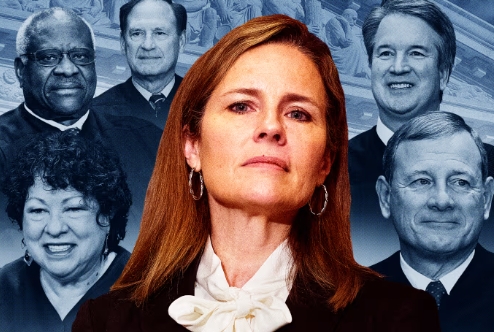Faith in the Courtroom: The Catholic Justices of the Supreme Court
The Supreme Court is the highest judicial body in the United States, responsible for interpreting the Constitution and making final decisions on legal disputes. Within this esteemed institution, the influence of faith can be seen through the presence of Catholic justices on the bench.
Faith as a guiding principle
For many Catholic justices, faith is a central guiding principle in their lives and decision-making processes. Their religious beliefs shape their moral compass and help them navigate complex legal issues with a sense of ethical responsibility.
Justice John Roberts, a devout Catholic, has spoken openly about how his faith informs his decisions on the bench. He has emphasized the importance of upholding the rule of law while also recognizing the broader implications of legal decisions on society as a whole.
Justice Amy Coney Barrett, another Catholic justice, has also been vocal about the role of faith in her life and work. She has discussed how her religious beliefs shape her views on issues such as abortion and social justice, while also emphasizing the need for impartiality and objectivity in her judicial role.
The intersection of faith and law
While Catholic justices bring their religious beliefs to the courtroom, they also understand the importance of upholding the principles of the Constitution and the rule of law. They strive to balance their personal convictions with the demands of their judicial duties, ensuring that their decisions are grounded in legal precedent and rigorous analysis.
Justice Sonia Sotomayor, a practicing Catholic, has emphasized the need for empathy and understanding in the legal process. She believes that faith can inform a judge’s ability to see the humanity and suffering of individuals involved in legal disputes, encouraging a more compassionate and just approach to decision-making.
In conclusion, the Catholic justices of the Supreme Court bring a unique perspective to the bench, grounded in their faith and moral convictions. While their religious beliefs may influence their decisions, they also uphold the principles of justice, impartiality, and respect for the rule of law. In this way, faith in the courtroom can be a source of strength and guidance for these esteemed jurists as they navigate the complexities of the law and seek to uphold the values of justice, equality, and fairness for all.

